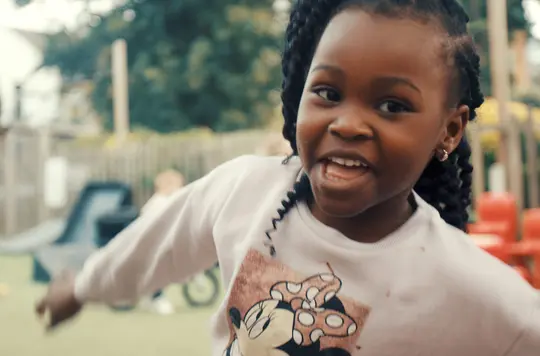Domestic abuse

Helping women who have left
Domestic abuse comes in a variety of forms often with many people not realising its occurring. It can lead to a range of physical, psychological and emotional side effects. Domestic abuse can happen to anyone, and from anyone including family members, partners and friends.
At The Salvation Army, we believe that every person has the right to live a life of freedom. We are committed to supporting people who need us and helping them to live to their fullest potential. These are values that we have championed since our founding, and even set up rescue homes for women fleeing domestic abuse in the 1800s. Today, we continue to help and support people from domestic abuse by providing confidential accommodation through to support programmes.
Who we help
We offer safety and on-going support to women and their children as well as single females who have experienced domestic abuse. Each resident is respected and valued as an individual and the support they are offered is holistic and tailored to meet individual needs.
What we do to support victims of domestic abuse
We have a confidentially-located community setting in which each family or individual is provided with furnished, temporary accommodation. This encourages independence and ownership of their situation, aspects that are normally taken away in an abusive relationship, as they take part in a resettlement programme. We work in conjunction with other agencies and housing associations to empower them to reintegrate with full independence and confidence in a community of their choice.
As with all the services we provide, we not only offer a place of safety, but tailor-make programmes to provide people with the skills and tools to end the cycle of their previous situation and move on to a life of independence and freedom. Some of what we help with includes:
- Self-help
- Life skills
- Social skills
- Budgeting
- Access to education
Not only is it important to move on from the trauma they have experienced using tailored support, fun is a key element in the life of any local community and rebuilding self-esteem and confidence.
There are frequent activities such as video nights, hair and beauty nights, quizes through to library and games evenings for children. Children’s workers are responsible for weekly children’s groups and during the holidays the centre provides a holiday scheme for the children.
Our local work in our churches and Lifehouses – residential centres which support people who are experiencing homelessness – often put our staff and members in contact with people who are experiencing domestic abuse where we offer appropriate services through to helping to furnish accommodation and give practical advice.
We continue to offer support for when residents move on, ensuring they stay moved on.
The Link Café
The Link Café (TLC), based in the Morden/Mitcham area, is another service for victims of domestic abuse. TLC is dedicated to providing support to women who have left their abusive relationships through linking to other services in the local community. The Link Café has willing, trained volunteers on hand to support in any way needed. TLC offers a range of services, from:
- Find local services (housing, benefits, legal support)
- Support groups for you or your children
- Meet other women and mentors
- Supervised children’s corner
- Access to the Internet and printing
TLC was set up in spring 2016 to link women who have left abusive partners to other services in the community. Working with Merton borough council and other volunteer agencies, The Salvation Army sought to fill a perceived gap where we journey with each individual in a direction and at a pace they choose. Find out further details about The Link Café.
Signs of domestic violence and abuse
Abuse can come in many forms, some of which may not be obvious, but is aimed at having and retaining power over you. The NHS provides a comprehensive list of the signs that you may be in a domestically abusive relation, some of which you can find below. You can also download our Domestic Abuse Help and Support leaflet.
Emotional
- Being isolated from your friends and family
- Being demeaned or put down
- Decisions being made for you e.g. what to wear, who to socialise with, what to think
Physical
- Objects being thrown at you
- Being pushed or shoved
- Being slapped or hit
Sexual
- Being pressured to have sexual intercourse
- Making unwanted sexual demands
- Physically abusive during sexual intercourse
What to do if you think you’re being domestically abused
If you are worried you are being abused there are various steps you can take to seek help
- Open up to a trusted person
- Seek advice from Women’s Aid or Refuge
- Contact 999 in the case of emergency
- Talk to a doctor or another trusted professional
What to do if you think someone you know is being domestically abused
- Listen
- Don’t push them to talk
- Show support and understanding, acknowledge it’s a tricky situation
- Offer to go to the hospital or GP with them
- Provide information on how they can receive help

In the community
We work at the heart of communities transforming lives in the name of Jesus

Youth and children
We raise leaders and young people in the tradition of social change and justice.

Families
Having faith in the family

Safeguarding
We are committed to preventing, identifying and responding to the abuse of children and adults.